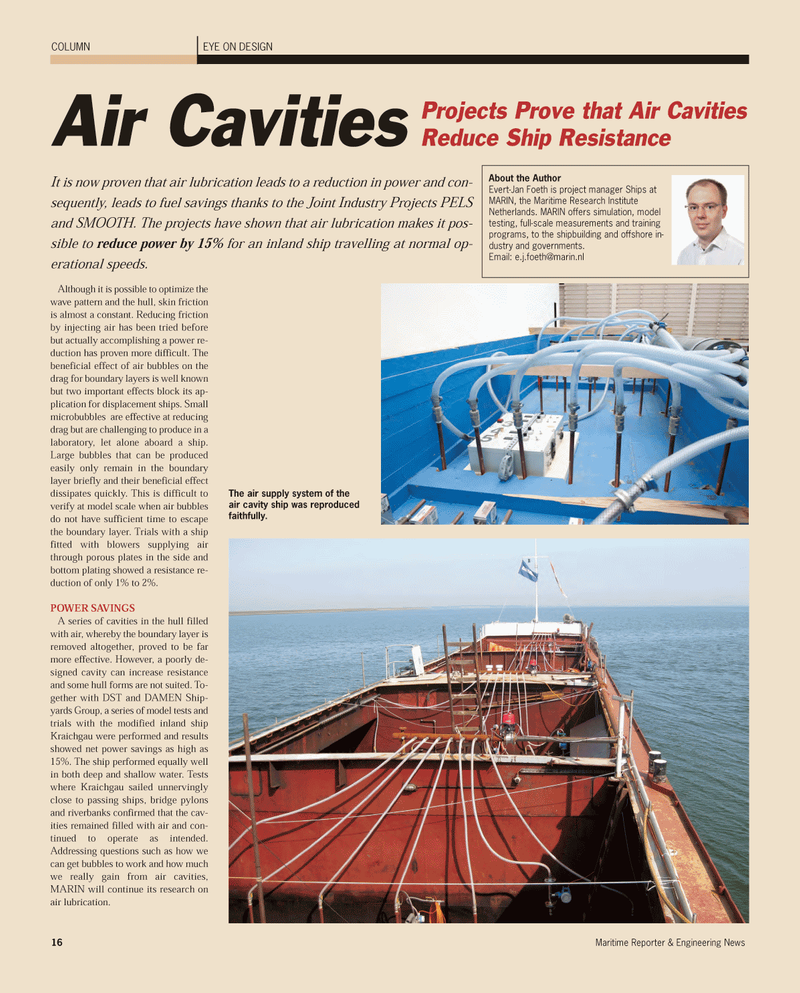
Page 16: of Maritime Reporter Magazine (December 2011)
Great Ships of 2011
Read this page in Pdf, Flash or Html5 edition of December 2011 Maritime Reporter Magazine
Although it is possible to optimize thewave pattern and the hull, skin friction is almost a constant. Reducing frictionby injecting air has been tried beforebut actually accomplishing a power re- duction has proven more difficult. The beneficial effect of air bubbles on the drag for boundary layers is well known but two important effects block its ap- plication for displacement ships. Smallmicrobubbles are effective at reducing drag but are challenging to produce in a laboratory, let alone aboard a ship. Large bubbles that can be produced easily only remain in the boundarylayer briefly and their beneficial effect dissipates quickly. This is difficult to verify at model scale when air bubbles do not have sufficient time to escape the boundary layer. Trials with a ship fitted with blowers supplying air through porous plates in the side andbottom plating showed a resistance re- duction of only 1% to 2%.POWER SAVINGS A series of cavities in the hull filled with air, whereby the boundary layer isremoved altogether, proved to be far more effective. However, a poorly de- signed cavity can increase resistance and some hull forms are not suited. To- gether with DST and DAMEN Ship- yards Group, a series of model tests andtrials with the modified inland ship Kraichgau were performed and results showed net power savings as high as 15%. The ship performed equally well in both deep and shallow water. Tests where Kraichgau sailed unnervingly close to passing ships, bridge pylons and riverbanks confirmed that the cav- ities remained filled with air and con- tinued to operate as intended.Addressing questions such as how we can get bubbles to work and how much we really gain from air cavities, MARIN will continue its research onair lubrication.EYE ON DESIGNCOLUMNAir CavitiesProjects Prove that Air Cavities Reduce Ship ResistanceThe air supply system of theair cavity ship was reproduced faithfully. About the AuthorEvert-Jan Foeth is project manager Ships at MARIN, the Maritime Research Institute Netherlands. MARIN offers simulation, model testing, full-scale measurements and training programs, to the shipbuilding and offshore in- dustry and governments. Email: [email protected] Reporter & Engineering News It is now proven that air lubrication leads to a reduction in power and con- sequently, leads to fuel savings thanks to the Joint Industry Projects PELS and SMOOTH. The projects have shown that air lubrication makes it pos- sible to reduce power by 15% for an inland ship travelling at normal op- erational speeds. MR Dec.11 # 2 (10-17):MR Template 12/6/2011 9:22 AM Page 16

 15
15

 17
17
